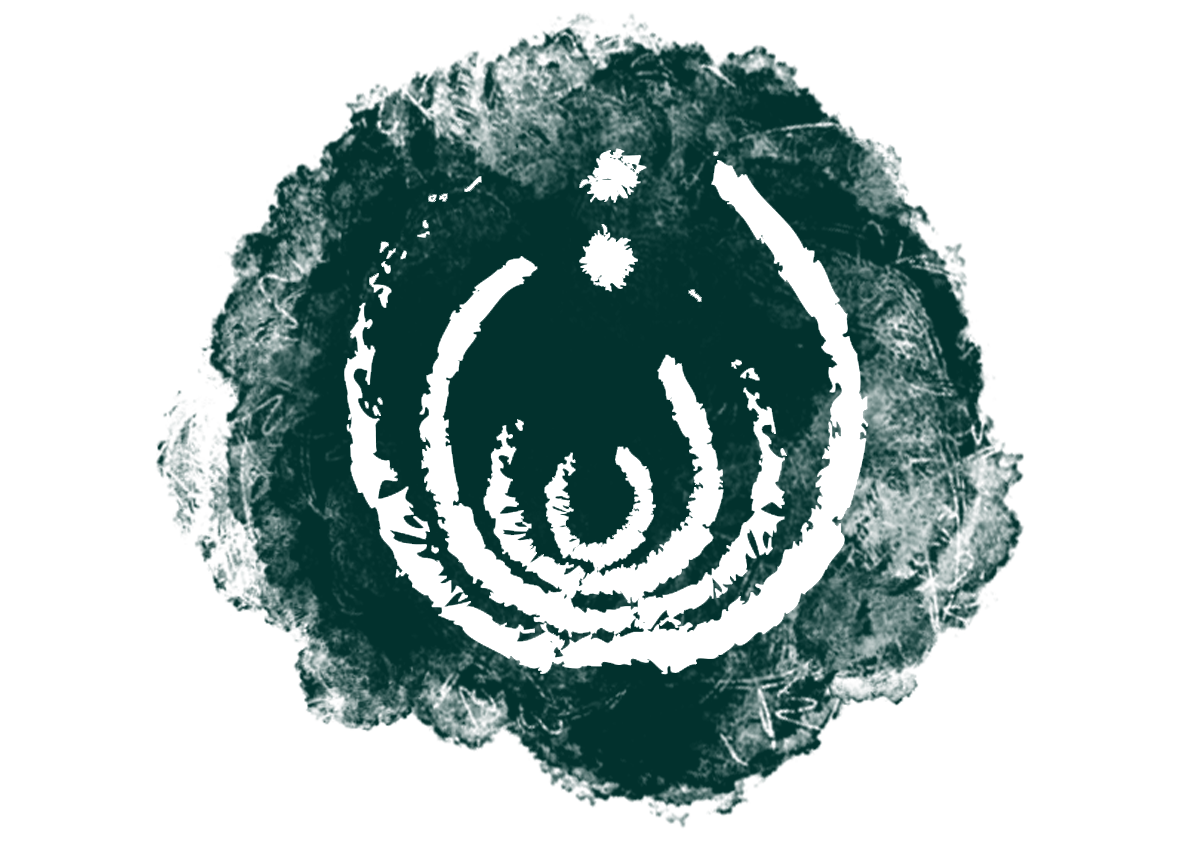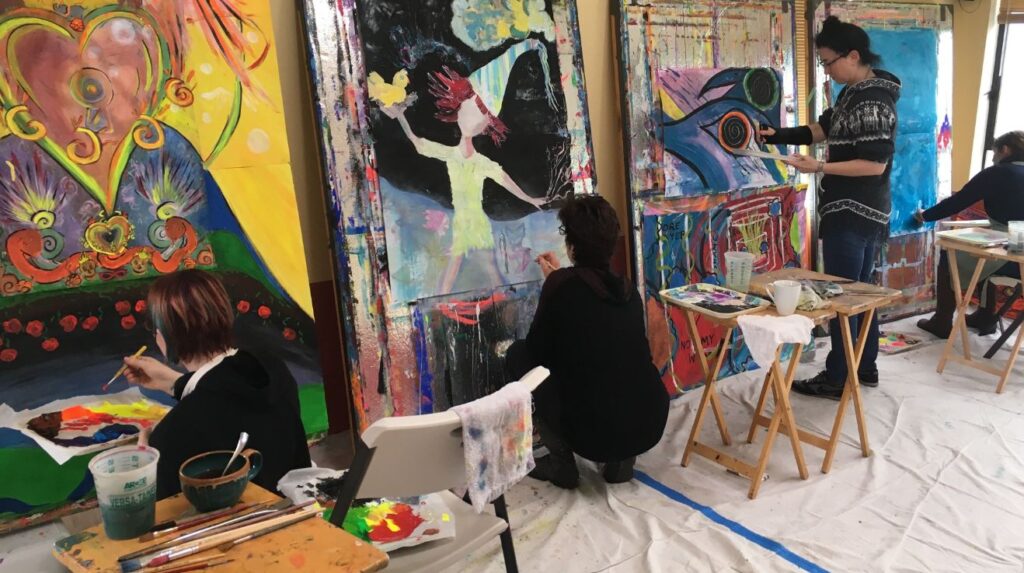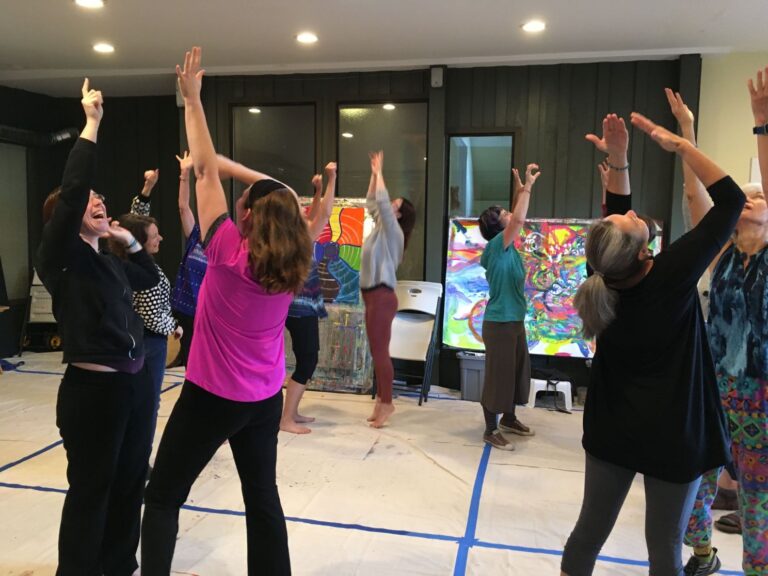Absolutely not. All art based experiences facilitated by me are suitable for complete beginners and for people with more experience.
This is because all experiences are process oriented rather than product oriented and can be approached from any level. Your skills, ability and experience are perfect exactly as they are and yes, you will be able to do it. That’s a promise!
No, you won’t be taught techniques of how to paint and create images or produce paintings in a certain way. However, you will be taught the principles for engaging with the intuitive painting process and how to listen deeply to yourself and you will be facilitated to work through ‘blocks’ and challenges in your painting process.
All art making facilitated by me is process oriented as opposed to product oriented. The emphasis is on expressing yourself, staying present to how you are feeling and what you are experiencing in the process of creating. This kind of art making is not concerned with aesthetics, how a piece looks or even particularly with what the content of the painting or page is about. The finished product is secondary and in some ways insignificant.
Intuitive process painting is a way of painting that’s focused on your process rather than the end product.
Intuitive paintings are started and created without a plan; following spontaneous internal urges and intuitive prompts.
Navigating resistance, judgement and attempts by your logical mind to control the process and outcome, are valuable parts of the journey within.
The process is about staying present to yourself and painting from how you’re feeling in the moment.
Intuitive process painting offers a powerful way of expressing your unique authentic self, discovering more about yourself and deepening your connection to your inner guidance.
Expressive Arts involve the exploration and use of music, movement, dance, writing, art, craft, drama, singing and voice to authentically express and connect with yourself.
They offer a way of connecting with your felt experience and accessing information and ways of self-healing that don’t involve the analytical thinking mind.
Engaging with expressive arts helps you feel embodied (‘in your body’) and connected with yourself.
And, as we access our intuition and deep knowing through our bodies, expressive arts are part of all my sessions.
Art journaling or visual journaling, as it is sometimes known, is the process of expressing yourself visually inside a journal/book for the purpose of exploring, processing and or documenting your life or simply for experimenting and expressing yourself in the moment.
Art journaling can be approached with intention or spontaneously i.e. without a plan. A variety of mixed media (e.g. pencil, pen, acrylic, watercolour, collage, stitching etc) and methods (e.g. scribbling, etching, painting, dripping, sticking down, layering, revealing, covering, combining, burning etc) can be used in a free, expressive way to put images, thoughts, feelings, memories, intentions, notions, senses and questions down onto the page in a visual way.
The visual journal is a container that can hold everything. It is a safe space to be yourself 100% and to create entirely for yourself. Just like a written journal/diary it need never be shown to another living soul. Each art journalist will develop their own style and approach to art journaling and will receive their own benefits from their practice. If approached with curiosity and compassion, art journaling can be a very supportive tool for personal growth, development and healing.
You will be supported to play with and explore different techniques and ways of using mixed media with the aim of finding ways to express yourself uniquely rather than for producing particular results. This will be process oriented rather than product oriented.
For me, creating is a spiritual practice.
When I create mindfully and approach the process from a place of not knowing and openness to being guided, I feel deeply connected to myself and to something greater than myself.
I love sharing this process-oriented, intuitive way of creating with others and witnessing the insights and growth that happen as a result.
All my offerings are grounded in this way of engaging with the creative process.
It’s an honour every time another human being asks me to witness and partner them into their internal world.
I personally know the depths of healing possible, simply from receiving the profound gift of another person’s full attention and unconditional positive regard.
As someone who’s experienced crippling anxiety and panic attacks, I deeply understand the need for an embodied sense of safety and trust, to feel able to open up and allow what wants to come through to come through.
My approach to holding space is trauma informed. I find it supportive to use nervous system regulating exercises to help show our bodies it’s safe here & now, in the present moment.
In my coaching and spiritual mentoring sessions, I love to delve into dreams, synchronicities, symbols and patterns, and use the tools of oracle cards, Human Design, astrology & more to help gain clarity.
I offer compassionate and empathetic listening and gentle but laser-focused questions to facilitate deep unravelling.
My role as coach/mentor is to hold the vision your soul has for you and act in service of your fullest authentic expression at all times, guided by you and Spirit and what you bring to each session.


